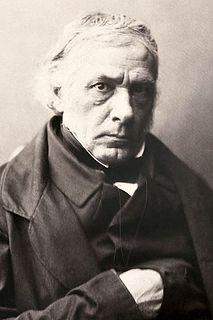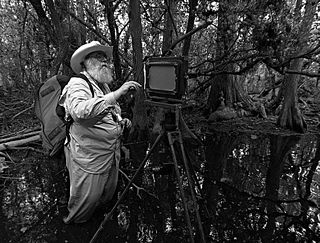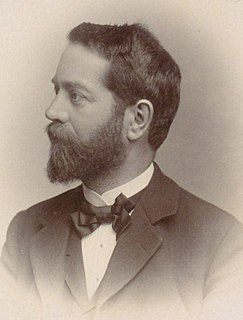A Quote by Paul Cezanne
The strong experience of nature... is the necessary basis for all conception of art on which rests the grandeur and beauty of all future work.
Quote Topics
Related Quotes
Art itself is essentially ethical; because every true work of art must have a beauty or grandeur of some kind, and beauty and grandeur cannot be comprehended by the beholder except through the moral sentiment. The eye is only a witness; it is not a judge. The mind judges what the eye reports to it; therefore, whatever elevates the moral sentiment to the contemplation of beauty and grandeur is in itself ethical.
[M]y conception of liberty does not permit an individual citizen or a group of citizens to commit acts of depredation against nature in such a way as to harm their neighbors and especially to harm the future generations of Americans. If many years ago we had had the necessary knowledge, and especially the necessary willingness on the part of the Federal Government, we would have saved a sum, a sum of money which has cost the taxpayers of America two billion dollars.
Art is beauty, and every exposition of art, whether it be music, painting, or the drama, should be subservient to that one great end. As long as nature is a means to the attainment of beauty, so-called realism is necessary and permissable [sic], but it must be realism enhanced by idealism and uplifted by the spirit of an inner life or purpose.
It is possible that, through horizontal and vertical lines constructed with awareness, but not with calculation, led by high intuition, and brought to harmony and rhythm, these basic forms of beauty, supplemented if necessary by other direct lines or curves, can become a work of art, as strong as it is true.
Wilderness, to me, is a spiritual necessity. The mysterious spiritual experience of being close to natural restored my soul [after the death of his son]. My experience reinforced by dedication to use the art of photography as an inspiration for others to work together to save nature's places of spiritual sanctuary for future generations.
Aeronautics confers beauty and grandeur, combining art and science for those who devote themselves to it. . . . The aeronaut, free in space, sailing in the infinite, loses himself in the immense undulations of nature. He climbs, he rises, he soars, he reigns, he hurtles the proud vault of the azure sky . . .








































